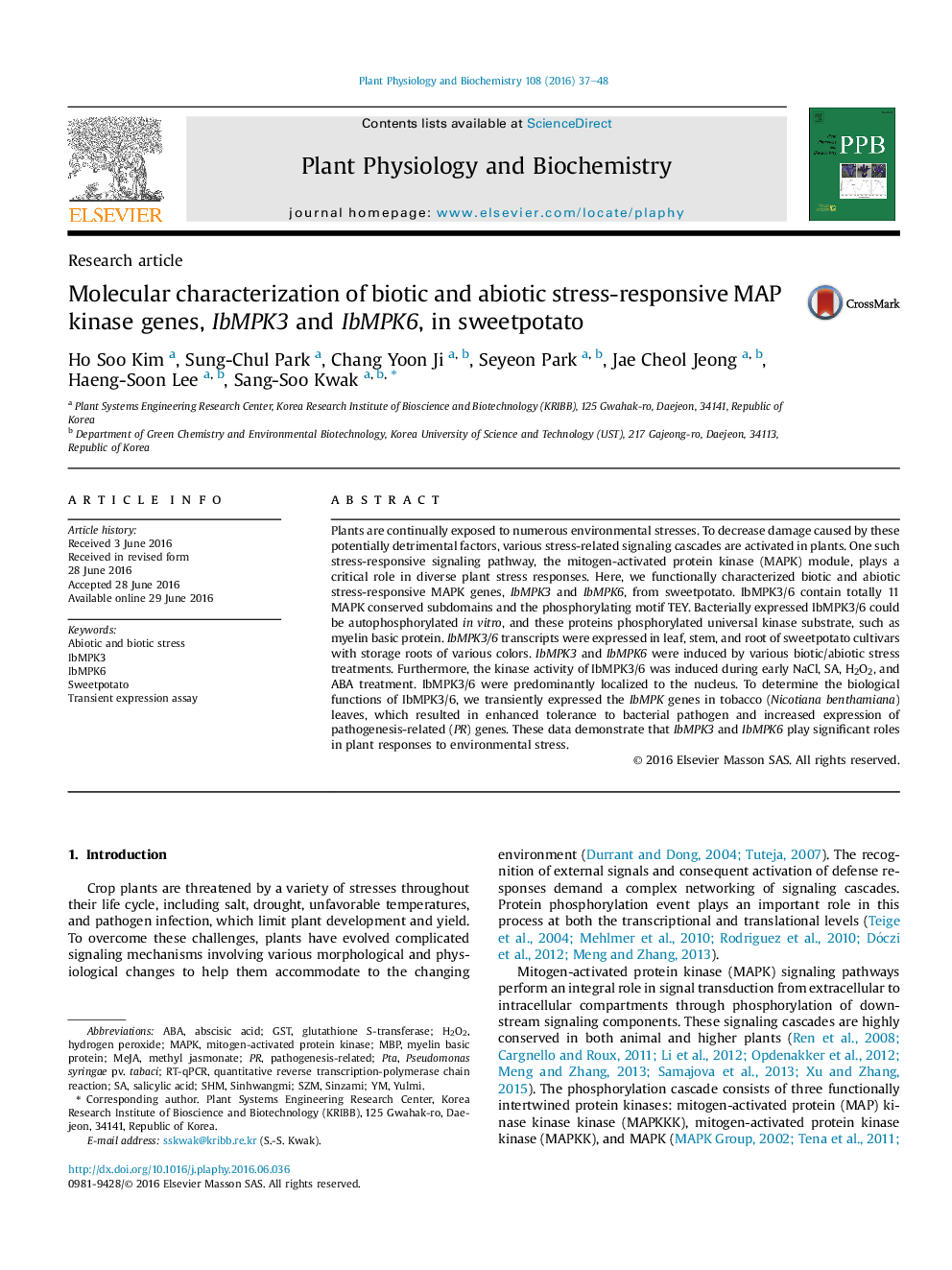| Article ID | Journal | Published Year | Pages | File Type |
|---|---|---|---|---|
| 2014690 | Plant Physiology and Biochemistry | 2016 | 12 Pages |
•Two MPK genes were isolated and characterized from sweetpotato.•The IbMPK3 and IbMPK6 were involved in abiotic/biotic stress response of sweetpotato.•The kinase activity of IbMPK3/6 was induced by various stress treatment.•The IbMPK3 and IbMPK6 act as positive regulators of the disease resistance response.
Plants are continually exposed to numerous environmental stresses. To decrease damage caused by these potentially detrimental factors, various stress-related signaling cascades are activated in plants. One such stress-responsive signaling pathway, the mitogen-activated protein kinase (MAPK) module, plays a critical role in diverse plant stress responses. Here, we functionally characterized biotic and abiotic stress-responsive MAPK genes, IbMPK3 and IbMPK6, from sweetpotato. IbMPK3/6 contain totally 11 MAPK conserved subdomains and the phosphorylating motif TEY. Bacterially expressed IbMPK3/6 could be autophosphorylated in vitro, and these proteins phosphorylated universal kinase substrate, such as myelin basic protein. IbMPK3/6 transcripts were expressed in leaf, stem, and root of sweetpotato cultivars with storage roots of various colors. IbMPK3 and IbMPK6 were induced by various biotic/abiotic stress treatments. Furthermore, the kinase activity of IbMPK3/6 was induced during early NaCl, SA, H2O2, and ABA treatment. IbMPK3/6 were predominantly localized to the nucleus. To determine the biological functions of IbMPK3/6, we transiently expressed the IbMPK genes in tobacco (Nicotiana benthamiana) leaves, which resulted in enhanced tolerance to bacterial pathogen and increased expression of pathogenesis-related (PR) genes. These data demonstrate that IbMPK3 and IbMPK6 play significant roles in plant responses to environmental stress.
